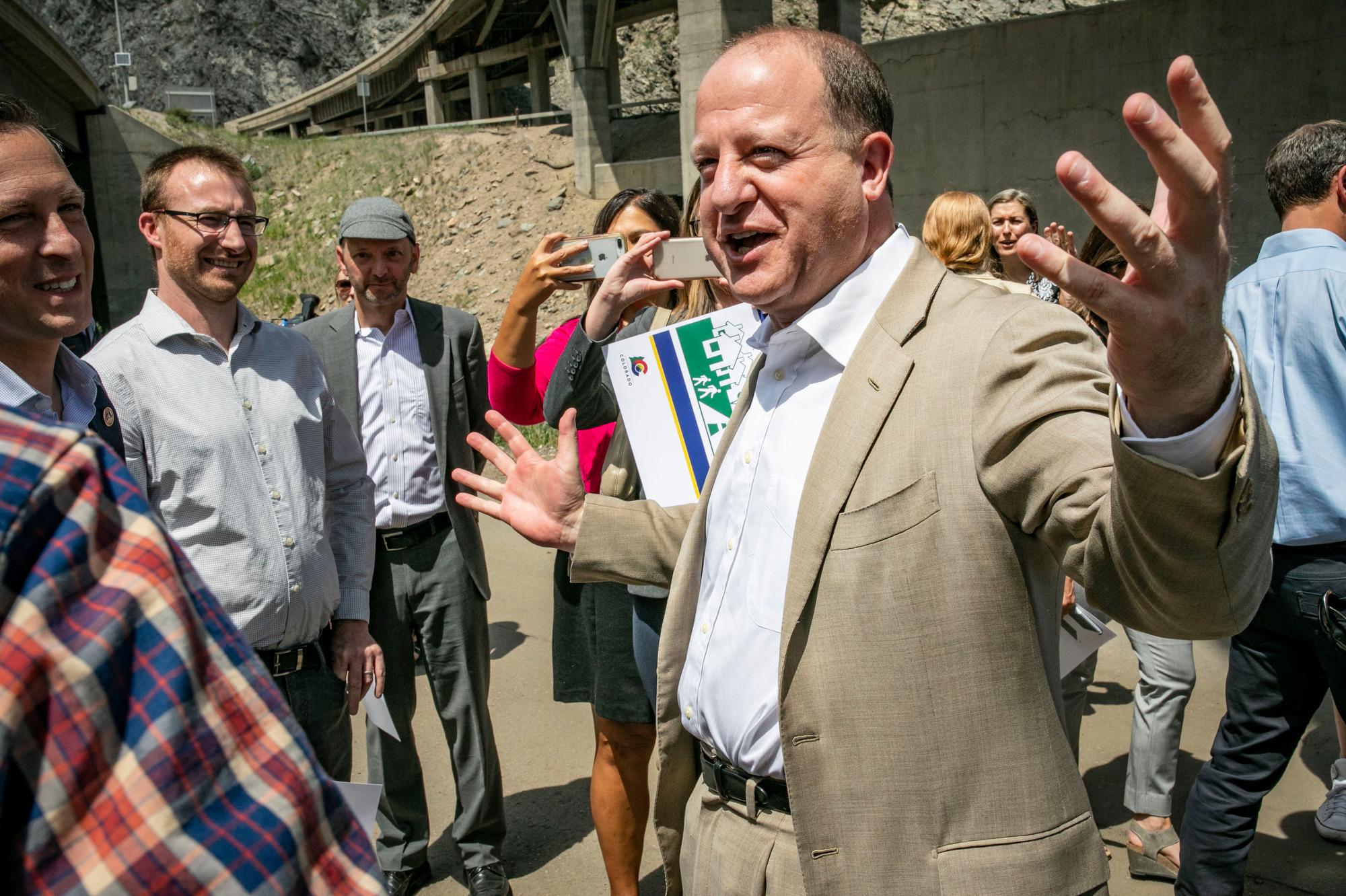
Colorado’s new transportation plan will spend billions of dollars on projects across the state — from Front Range interstates to rural bus stops.
But Gov. Jared Polis and his allies chose one particular location to symbolize the sweeping new legislation. They went to the base of Floyd Hill, where Interstate 70 narrows as it crosses a rugged stretch of hillside at the foot of the Rockies.
To the east are the hundreds of thousands of residents of the Denver metro. To the west are ski resorts and hiking destinations. In between are four lanes of tightly curved highway atop a half-century-old viaduct — a bottleneck that can add an hour of travel time when it’s crammed with thousands of drivers on busy weekends.
“This has been a long journey. And in many ways it’s just beginning. Soon, Floyd Hill and many other improvement projects across our state will be underway,” Polis said as trucks rumbled overhead.
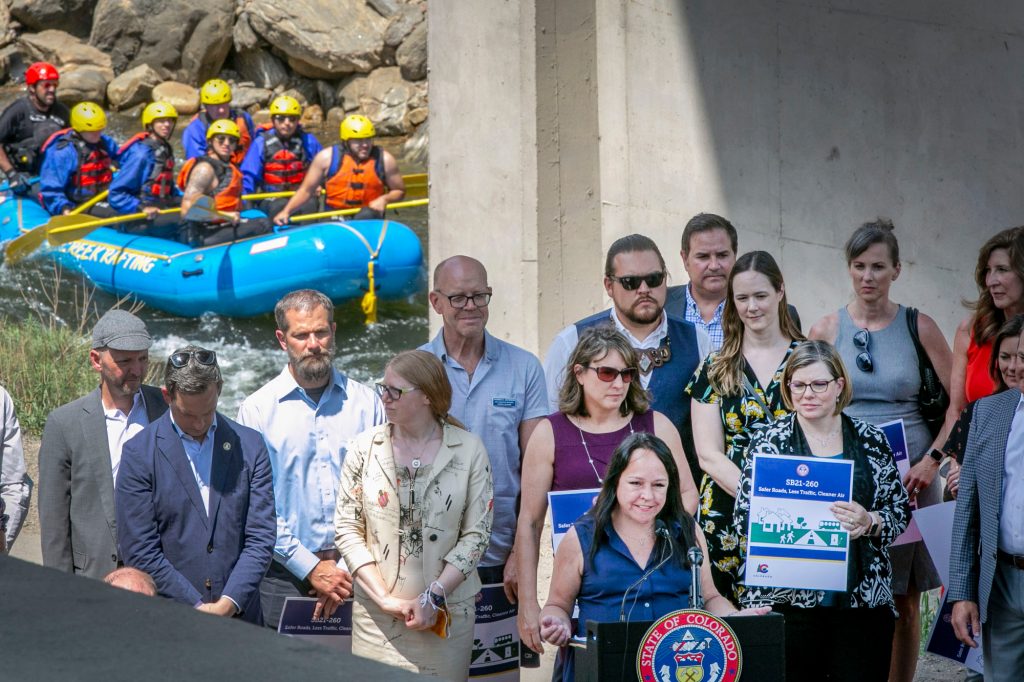
The Floyd Hill project, which would add extra travel lanes across seven miles, is one of the highest priorities for the Colorado Department of Transportation. The new law puts about $5.2 billion toward the agency’s 10-year-plan and other needs, opening the door for multimodal highway remodels, electric vehicle infrastructure and basic maintenance.
The law will “finally fix the damn roads in Colorado,” Polis said, claiming that the spending would support 27,000 jobs. (“Fix our damn roads” was the nickname of a failed transportation bond package on the 2019 ballot.)
Standing beneath the aging stretch of I-70, a series of speakers described the bill as the result of hundreds of meetings and countless compromises — a plan that didn’t give Republicans all the road projects they wanted, that didn’t deliver a fundamental shift away from the automobile for environmentalists, and that didn’t have to go before voters for approval.
“Every single aspect of this bill had well-meaning, genuine, reasonable people on both sides of those tradeoffs,” said Senate Majority Leader Steve Fenberg, a Democrat from Boulder.
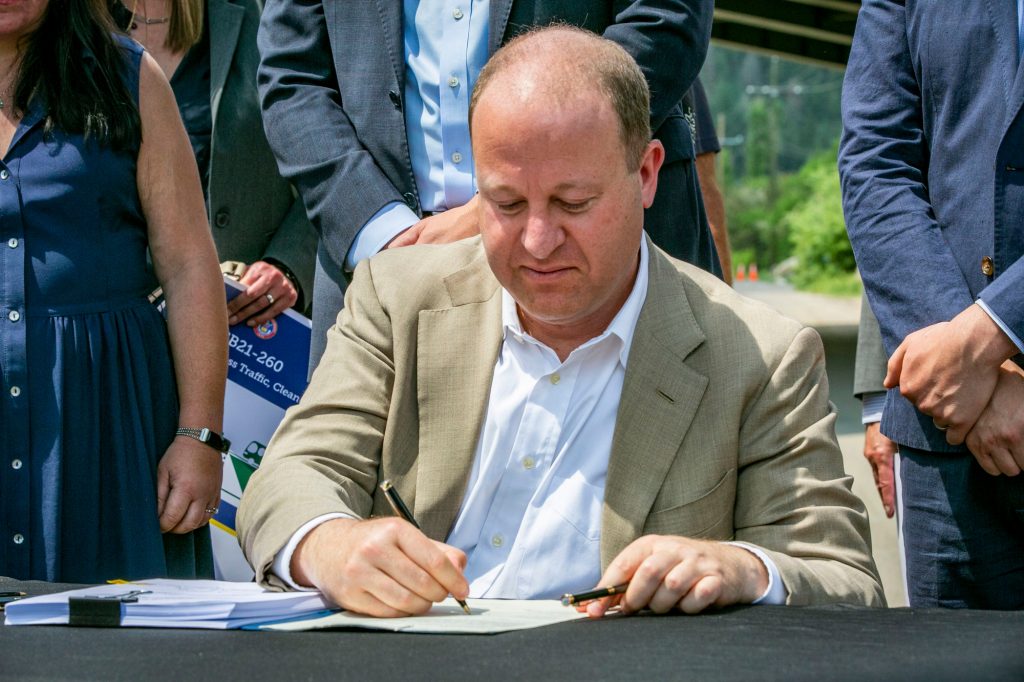
What the new fees are, how they work and when they kick in.
All these new projects will be paid for by a series of new fees, including:
- A fee on gas purchases, which will grow from 2 cents per gallon starting next July to 8 cents per gallon in 2028. It will increase with inflation after that
- A 27-cent fee on retail deliveries from companies like FedEx, Amazon, GrubHub and Instacart
- A 30-cent fee on most rides from apps like Uber and Lyft, although it’s only 15 cents for electric vehicles and shared rides
- Higher registration fees for electric vehicles, equivalent to a roughly $5 increase next year, since electric vehicle drivers use the roads but don’t pay gas taxes or fees.
The fees will start in July 2022.
The bill also temporarily decreases motor vehicle fees — totaling about $16 per vehicle across 2022 and 2023.
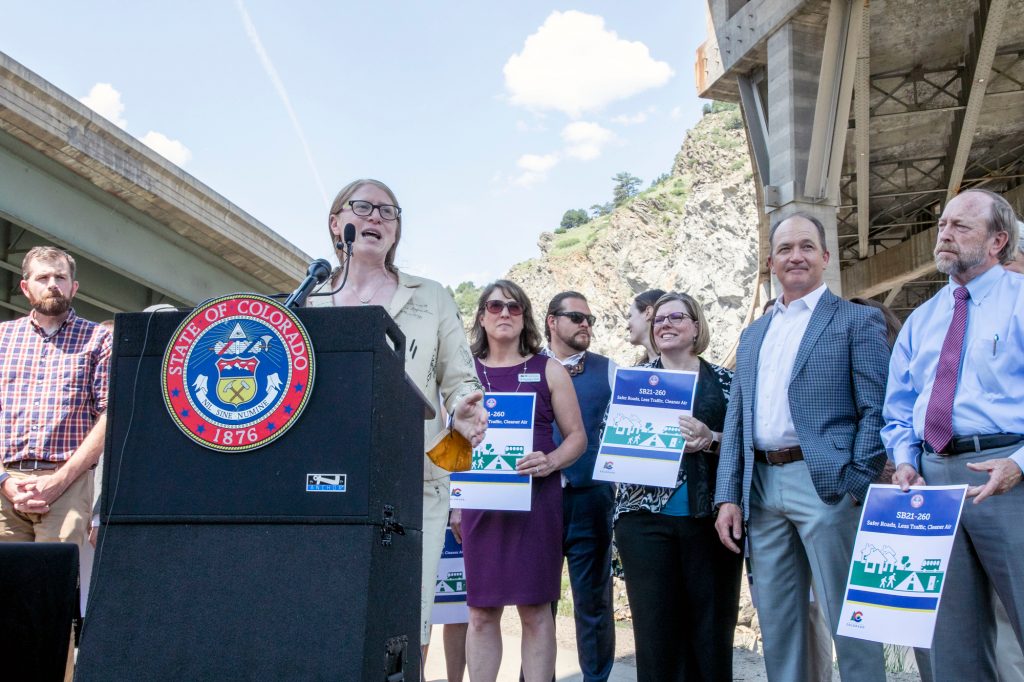
A variety of competing interests meant the transportation funding bill didn't pass until the final days of the legislative session.
Fenberg said lawmakers originally hoped they might hash out the bill within the first three days of session. That goal turned out to be wildly unrealistic given the mess of competing interests — between roads and transit, rural fixes or major urban rebuilds.
Ultimately, the proposal passed in the final days of the session, with only one Republican vote in support.
“That really is the Colorado way. We listened and we persevered,” said state Sen. Faith Winter, a Democratic sponsor.
The majority of the new money will go to roads, and the speeches reflected that fact. House Speaker Alec Garnett briefly addressed the neighboring states of Nebraska and Utah, which are known for having better roads.
“No longer will your citizens be driving into our state making a mockery of our roads,” he quipped.
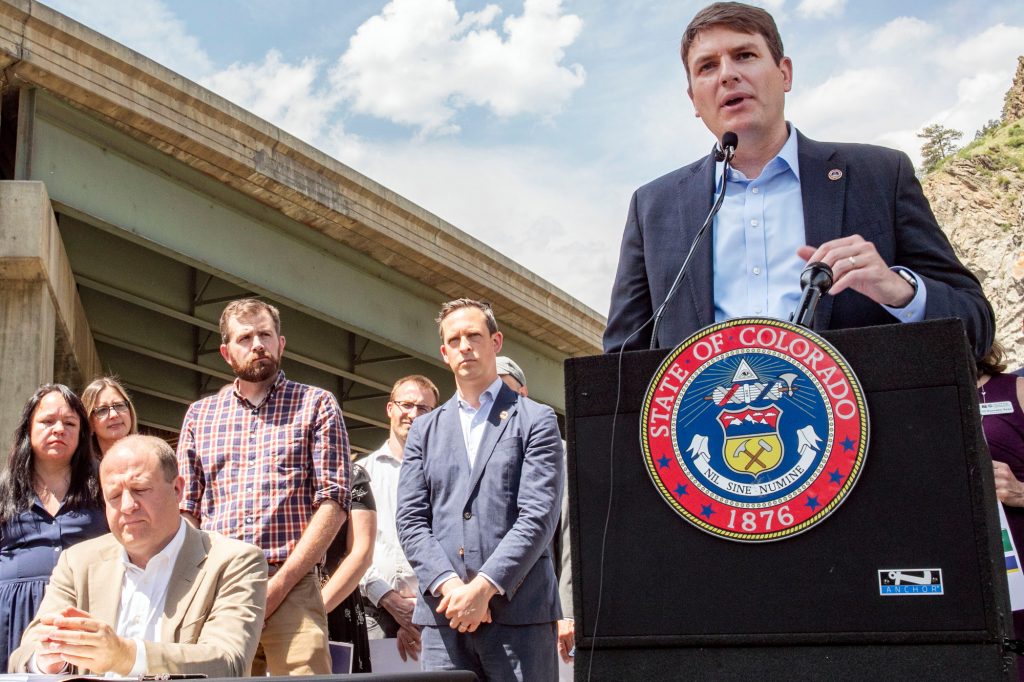
While the bill supports electric vehicles and multimodal transit, some environmentalists wish the state had gone even farther.
The bill will also spend more than $1 billion on electric vehicles and charging infrastructure, as well as transit projects. Some environmentalists wanted to see more, saying that expanding roads and highways would ultimately reinforce the state’s reliance on carbon-emitting cars.
State officials argued that they could rebuild the roads without worsening climate change. On Floyd Hill, the addition of a new lane, especially if it’s tolled, could speed up bus service. The law also creates a new branch of CDOT that is supposed to work directly with disproportionately impacted communities to ensure they are part of decisions.
Overall, CDOT estimates that its 10-year plan will add only a tenth of a percent to the number of vehicle miles traveled in the state. But the environmental think tank RMI has estimated a much higher increase, of about 2 percent. The two sides have sparred over whose estimate is right.
In an interview, Polis described the change as a momentous but temporary solution.
“We were trying to get it right for the next 10 years, next 15 years. I don't know what the world will look like in 40 or 50 years. I don’t think anybody does,” he said, responding to a question about the long-term sustainability of the new policies.
“I think what's clear is we need to do something about the traffic and congestion, and we need to modernize how we look at transportation,” he added, naming multimodal options, road maintenance and wildlife crossings as priorities.
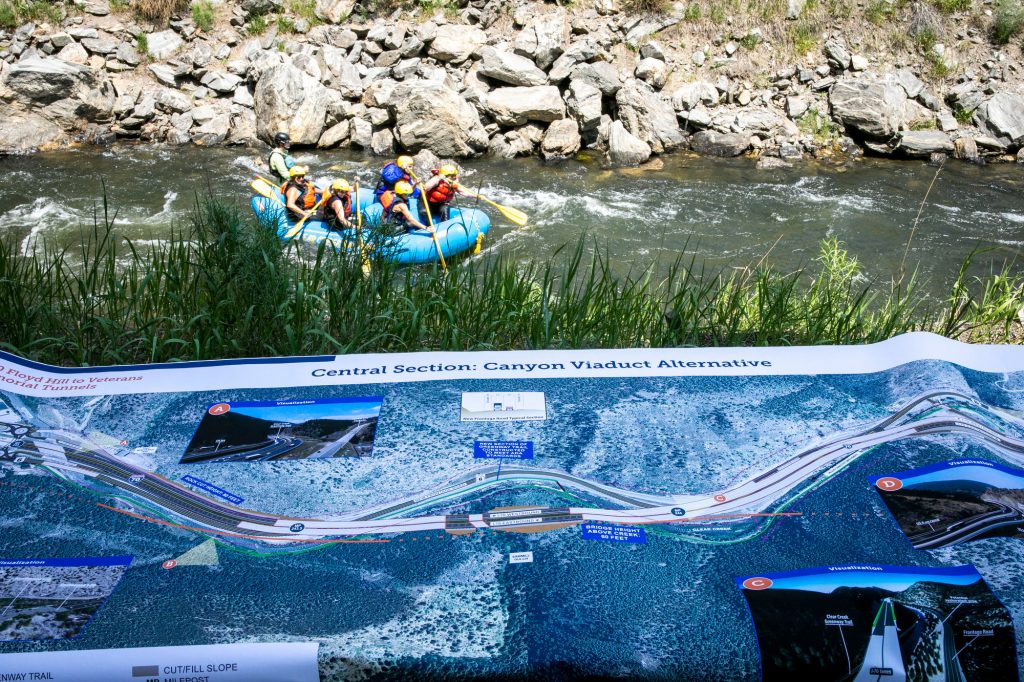
Republicans objected to the focus on EVs and transit over roads, as well as the reliance on fees for funding.
On the other hand, Republicans have complained that the new money focuses too much on electric vehicles and transit, and not enough on roads. Only one Republican, state Sen. Kevin Priola, voted for the measure.
"Our cities were developed around the automobile and should respect the automobile," said state Rep. Matt Soper, a Republican from Delta, during a debate over the bill.
They also have criticized the bill’s reliance on fees for most of its funding. By using fees, lawmakers ensured that they didn’t have to ask voters for permission to spend those billions. Conservative activists say that they plan to hammer Polis and his fellow Democrats on that approach in next year’s elections.
Polis said that the use of fees ensures that the billions will be spent on very specific causes. “Unlike taxes, fees can't be diverted by any future legislature. So, every Coloradan knows that every dollar has to go to the purposes of the enterprise,” he said in the interview.
Pressed on the issue of voter approval, Polis said that voters wanted lawmakers to come up with a solution — and this was it.
“It took many months to craft this,” he said, “and I think the overwhelming voice from the voters is, ‘Politicians do your job and get it done.’”









